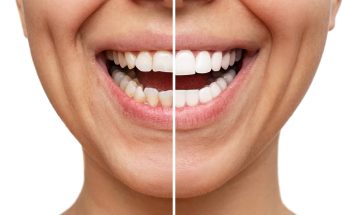Depression is a prevalent mental health condition that affects millions of adults worldwide. While there are various treatment options available, Dialectical Behavior Therapy (DBT) has emerged as a powerful and effective approach in supporting individuals struggling with depression. DBT skills for depression offers a comprehensive set of skills and strategies that empower adults to manage their emotions, improve coping mechanisms, and foster a greater sense of well-being. In this article, we will explore how DBT skills techniques can help support adults with depression and enhance their journey towards recovery.
Emotion Regulation
One of the core components of DBT is emotion regulation, which is particularly valuable for individuals grappling with depression. DBT equips adults with depression with practical skills to identify, understand, and effectively manage their emotions. By learning to recognize and label their emotions, individuals can develop a greater sense of self-awareness, leading to a more nuanced understanding of their depressive experiences. Emotion regulation skills enable individuals to respond to emotions in healthier ways, reducing the intensity and duration of depressive episodes.
Distress Tolerance
Depression often accompanies periods of intense emotional distress. DBT’s distress tolerance skills offer invaluable tools to help individuals cope with distressing situations without resorting to self-destructive behaviors. These skills emphasize accepting and tolerating distress, even when it feels overwhelming. By incorporating techniques such as distraction, self-soothing, and radical acceptance, DBT enables adults with depression to navigate difficult emotions and situations with resilience, reducing the risk of engaging in harmful behaviors.
Cognitive Restructuring
Negative thought patterns and cognitive distortions commonly characterize depression. DBT incorporates cognitive restructuring techniques to challenge and modify these distorted thoughts. Through mindfulness and cognitive reframing exercises, individuals learn to identify negative thinking patterns and replace them with more balanced and realistic thoughts. By addressing negative self-perceptions and pessimistic interpretations of events, adults with depression can experience a shift towards more positive and adaptive thinking, leading to improved mood and overall well-being.
Interpersonal Effectiveness
Depression can significantly impact interpersonal relationships, leading to social isolation and strained connections. DBT’s interpersonal effectiveness skills empower individuals to improve their communication, assertiveness, and boundary-setting abilities. By learning effective strategies to express needs, manage conflicts, and cultivate healthier relationships, adults with depression can enhance their support systems and reduce feelings of loneliness. Stronger interpersonal skills can contribute to a sense of belonging and provide a valuable source of emotional support during the recovery process.
Mindfulness
Mindfulness, a central component of DBT, offers a powerful tool for managing depression. By cultivating non-judgmental awareness of the present moment, individuals with depression can develop a greater understanding of their thoughts, feelings, and bodily sensations. Mindfulness practices help break the cycle of rumination and excessive worry, enabling individuals to focus on the present rather than being consumed by past regrets or future uncertainties. Regular mindfulness practice has been shown to reduce depressive symptoms, enhance self-compassion, and improve overall well-being.
Dialectical Behavior Therapy (DBT) provides a comprehensive and effective approach to supporting adults with depression. By incorporating skills related to emotion regulation, distress tolerance, cognitive restructuring, interpersonal effectiveness, and mindfulness, DBT equips individuals with the tools necessary to manage depressive symptoms, improve coping mechanisms, and foster a greater sense of well-being. By harnessing the power of DBT, adults with depression can embark on a journey of recovery, gaining control over their emotions, thoughts, and behaviors while cultivating a more fulfilling and meaningful life.




